About Crossroads Treatment Center of Northwest Georgia
Crossroads Treatment Center of Northwest Georgia based in Ringgold, Georgia, has outpatient services that help adults with opioid use disorder. The center offers the MAT along with behavioral therapies to help address the biological as well as the psychological aspects of the addiction. This holistic approach helps ensure clients have what it takes to live a sober life.
Comfortable and Effective Medication-Assisted Treatment
Crossroads provides a comfortable and effective MAT program which forms the foundation of its treatment approach and includes such medications as Methadone, Buprenorphine, Vivitrol, and Sublocade. These medications are meant to help with withdrawal symptoms, cravings and to keep the clients in a stable condition during the recovery process. This care is coupled with behavioral therapies, including CBT, motivational interviewing, and relapse prevention to develop an integrated plan for recovery.
Group and individual therapy help clients address the underlying causes of addiction. Not only does this improve the chances of recovery, but it also makes the clients feel better since they are not alone in the process. Group counseling can help clients to deal with feelings of isolation and anxiety while at the same time helping them develop relationships.
Medical Treatment to Aid Care
Crossroads understands that various groups of people have different needs, and therefore provides specific programs for pregnant and postpartum women. Similarly, the availability of Hepatitis C treatment at the center shows the center’s understanding that both physical and psychological health matter for recovery.
The facility provides flexible scheduling along with its medical care and evidence based treatment, allowing clients to stay stable and avoid relapse while they create a solid framework for long term recovery.
Addiction Treatment Programs
Alcohol Rehab
If you’re struggling with your alcohol use, consider an alcohol rehab in Georgia. During this program, you’ll work with professional counselors to deal with the psychological, emotional, and physical issues that alcohol misuse can cause. Over time, you’ll learn how to live without drinking long term.
Dual Diagnosis
If you have both a mental health condition and substance use disorder, you need dual diagnosis treatment in Georgia to address both issues together. A successful recovery may require counseling, peer support, and even mental health medication to help you manage your mental health symptoms and find better coping strategies.
Opioid Addiction
If your life has been negatively impacted by opioid addiction, a high-quality rehab in Georgia can help. High-quality treatment lays a foundation for sobriety and helps prevent relapses by giving you new ways of thinking, better coping skills, and a better understanding of key life skills such as emotional regulation and communication.
Young Adult Rehab
If you’re a young adult struggling with substance use, consider a young adult rehab program in Georgia. Young adult programs may include detox, inpatient treatment, outpatient care, aftercare services, and more.
Adult Program
An adult program in Kentucky addresses the unique needs of adults, such as finding secure housing, building a career, and raising a family. In addition to typical detox, inpatient treatment, and outpatient care, an adult program may also teach clients about building a career, saving for retirement, parenting, and more.
Men's Rehab
When people join a men’s rehab in Georgia, they are able to tackle gender-specific issues while receiving treatment. Men’s programs may include detox, inpatient treatment, outpatient care, and aftercare services. They will also provide education around gender-specific concerns such as fatherhood, healthy relationships, and more.
Women's Rehab
A women’s rehab in Georgia can provide every level of care while addressing the unique needs of women. Women’s programs may include detox, inpatient treatment, outpatient care, aftercare services, and more. They will also address issues specific to women such as motherhood, being a working mother, having healthy communication, and more.
Insurance Coverage
Self-pay options
Paying for rehab in Georgia yourself, out of your own pocket, is known as self-pay. You can write a check, have money electronically sent to the center, or use a medical loan. Payment details may vary depending on the level of care.
Medicaid
How do you pay for rehab in Georgia? If you have Medicaid, consider using it to pay for some or all of the costs of treatment. You can access multiple types of treatment in centers that accept Medicaid, including detox, inpatient, and outpatient care.
Levels of Care
- 1
Detox Treatment
During detox in Georgia, you’ll be monitored as the substances leave your system. Then you can start fresh and create a new life. Rehab programs often use FDA-approved medications, nutrition, therapy, and other treatment methods to ensure detox is safe and you’re ready for the next step in treatment.
- 2
Outpatient Rehab
Outpatient treatment in Georgia can provide a great way to practice and reinforce new habits formed in residential rehab programs. There are several goals in outpatient treatment. Some sessions may be focused on education about a certain topic, while others allow clients to discuss a specific issue they face.
- 3
Aftercare Support
It’s easy to wonder what’s next after treatment, but fortunately, aftercare in Georgia can provide ongoing support. One element of aftercare that can be very helpful is peer support, where you connect with those who have been where you are.
Therapies
Cognitive Behavior Therapy
The goal of cognitive behavioral therapy (CBT) in Georgia is to address negative thinking patterns to create positive change. CBT may include role-playing to help you imagine specific situations that might trigger a negative reaction so you can practice challenging automatic thoughts and choosing a more positive response.
Dialectical Behavior Therapy
The goal of dialectical behavioral therapy (DBT) in Georgia is to help you recognize your strengths and embrace your ability to create positive change. DBT may include role-playing to help you imagine specific situations that might trigger a negative reaction so you can practice healthy coping mechanisms and choose a more positive response.
Family Therapy
Family therapy in Georgia can address conflicts in your family so your loved ones can help provide encouragement, support, and accountability as you work through substance use treatment. During family therapy, you may talk about acceptance issues, past trauma, communication problems, and more. These discussions are facilitated by a professional who brings an unbiased perspective and can promote healthy communication.
Group Therapy
Group therapy in Georgia can provide encouragement, support, and accountability as you work through substance use treatment. There are several goals in group therapy. Some sessions may be focused on education about a certain topic, while others allow clients to discuss a specific issue they face. Overall, the group members hold each other accountable and provide encouragement.
Individual Therapy
During individual therapy in Georgia, clients have a confidential environment to work through their struggles with a professional. Individual therapy is only one element of rehab treatment, along with activities, peer support, group counseling, relapse prevention, and more. Together, all these methods support you in establishing long-term recovery.
Accreditations
Location
Contact Crossroads Treatment Center of Northwest Georgia
Top Drug Rehab Centers in Georgia
-
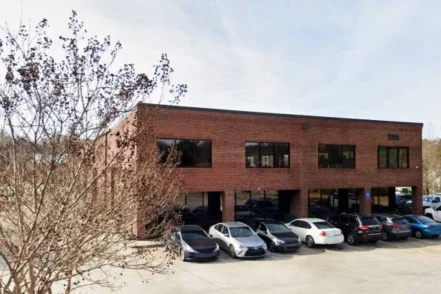 Georgia
GeorgiaBlue Ridge Mountain Recovery Center
255 Depot Street, Suite 200 Ball Ground, Georgia 30107
-
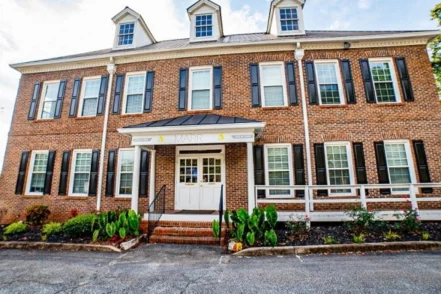 Georgia
GeorgiaMARR Addiction Treatment Centers
2815 Clearview Place Atlanta, Georgia 30340
-
 Georgia
GeorgiaSoutheast Addiction Center
3020 Holcomb Bridge Rd, Suite C Norcross, Georgia 30071
-
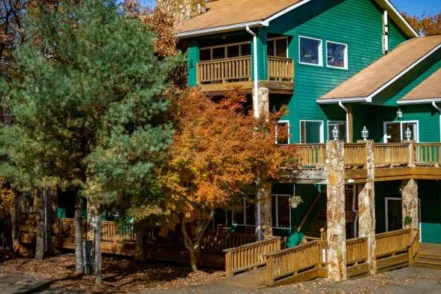 Georgia
GeorgiaMount Sinai Dahlonega
330 Mt. Sinai Drive Dahlonega, Georgia 30533
-
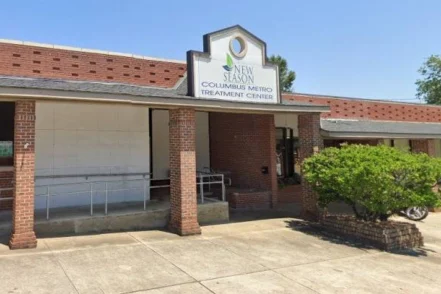 Georgia
GeorgiaNew Season Columbus Metro Treatment Center
1135 13th Street Columbus, Georgia 31901
-
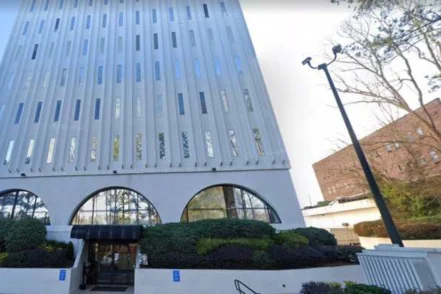 Georgia
GeorgiaSober Living America
2530 Peachwood Circle Ne Atlanta, Georgia 30345
-
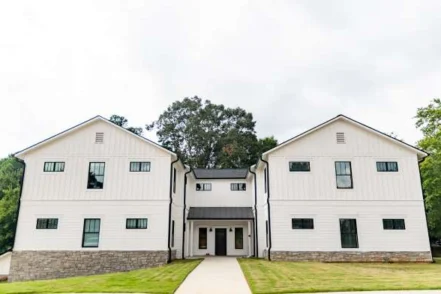 Georgia
GeorgiaNo Longer Bound
2725 Pine Grove Road Cumming, Georgia 30041
-
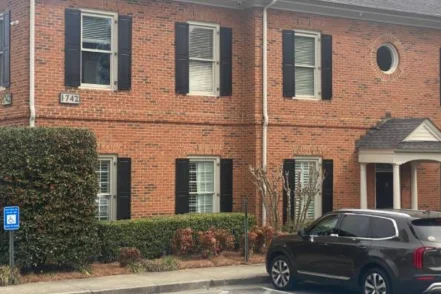 Georgia
GeorgiaAtlanta Recovery Place
1742 Mt Vernon Rd, Suite 100 Dunwoody, Georgia 30338
-
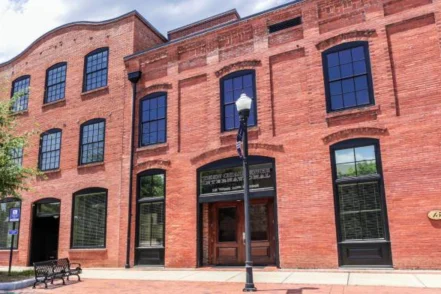 Georgia
GeorgiaTeen Challenge Southeast Region Corporate Office
15 West 10th Street Columbus, Georgia 31901
-
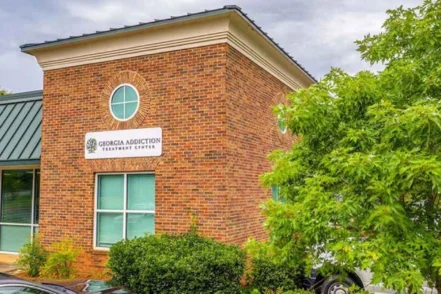 Georgia
GeorgiaGeorgia Addiction Treatment Center
100 Governors Trace, Suite 109-110 Peachtree City, Georgia 30269
-
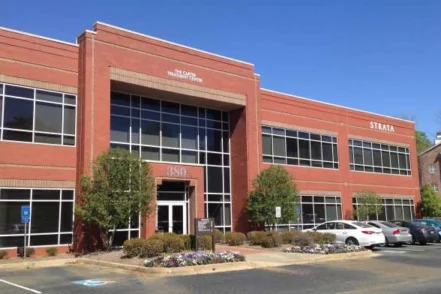 Georgia
GeorgiaThe Carter Treatment Center Cumming
380 Dahlonega, Suite 100 Cumming, Georgia 30040
-
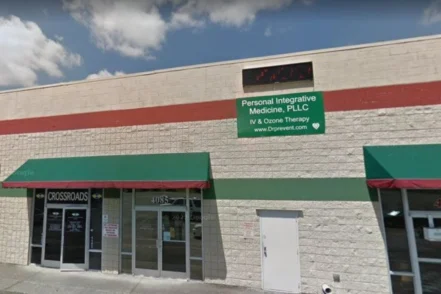 Georgia
GeorgiaCrossroads Treatment Center of Northwest Georgia
4083 Cloud Springs Road Ringgold, Georgia 30736
-
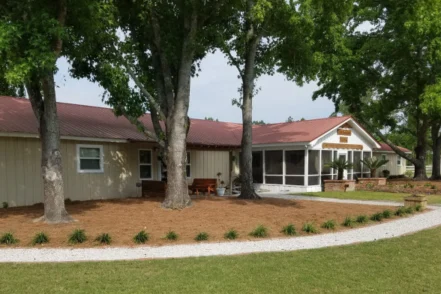 Georgia
GeorgiaBridges of Hope Homerville
1326 Antioch Church Road Homerville, Georgia 31634
-
 Georgia
GeorgiaTwin Lakes Recovery Center Monroe
398 State Hwy 11 Monroe, Georgia 30655


